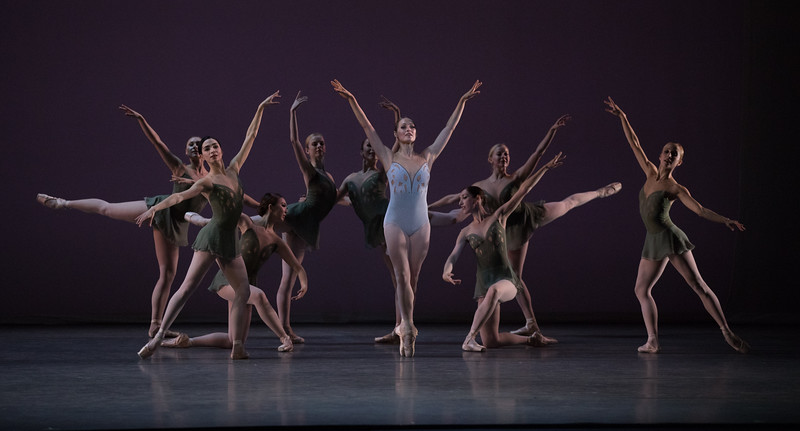By Maggie Dolan, city editor
Thanksgiving weekend marked the opening of this season’s production of “The Nutcracker” for the Boston Ballet, but the holiday season also marks more than nine months of contract negotiations between the Ballet and its dancers.
The previous three-year contract expired in June 2016, but the American Guild of Musical Artists (AGMA), the dancers’ union, is negotiating to hold onto benefits only acquired a few years ago for the 55 dancers it represents.
“Proposals from management were really extreme originally in their proposed cuts,” said Deborah Allton-Maher, the lead negotiator for the dancers and associate executive director of AGMA. “Cuts in benefits, cuts in salary structure, restructure in salaries. It was quite broad and comprehensive negative change.”
Allton-Maher said typically such extreme cuts to a contract occur when a company faces financial strain, but AGMA can find no evidence of such challenges, and ticket sales have recently been record-breaking. She praised the Ballet for its recent investments in a new dance school and new productions, but said it needs to continue to invest in its current dancers.
“To put the brakes on and to put in reverse what supports the dancers, which is the purpose of a ballet company, is unacceptable to us,” she said. “If there is in fact a need to economize in areas, then this is certainly not the place to do it and certainly not to this extreme.”
Dancers have formed a social media presence in response to the negotiations through a Facebook community called “Stand with the Dancers of Boston Ballet” and an Instagram page. A member of the page who is involved in the issue spoke on the condition of anonymity to protect their job. They said these accounts are outlets the dancers use to inform the public about the situation.
“We want to talk to everybody,” they said. “We want to make sure everyone is informed. We want to make sure that everyone knows what’s at stake, not only for the dancers but for the community and what everyone stands to lose.”
The source said overdue contracts are not a typical issue for the Ballet, as they are usually completed before the previous contract expires. But this round of negotiations brought cuts to important protections such as physical therapy programs, seniority compensation for dancers who are loyal to the company for years, compensation for injured dancers and wage increases as the costs of living in and around Boston rise.
“The concessions that we are being faced with are so valuable and are rights and protections that we have fought for through decades of collective bargaining and that we just obtained the last round of negotiations,” they said.
They said because of the Ballet’s nonprofit status, it faces a major challenge of ending each year with a net balance of zero, requiring financial decisions to go through a lot of tedious planning.
“Expenditures have to match income,” they said. “And for the ballet company, it’s very difficult. There’s a lot of rotating parts that require a lot of financial commitment, and ballet dancers are not cheap. Ballets are expensive to produce.”
The source said in the past, the Boston Ballet has been seen by other musical artist institutions as the “golden standard” of contracts when it comes to dancer protections and benefits, and other companies base their own contracts on those standards.
“So, to take a contract that’s so strong and so revered in the dance community,” they said, “and to dismantle it in a way that would strip it of a lot of what makes it so impactful, is such a shame to see that all go.”
According to a spokesperson for Boston Ballet, the group is working toward a timely agreement that will benefit both the dancers and the organization.
“We continue to negotiate in good faith to ensure our extraordinary dancers’ wellness and to preserve the stability of this beloved non-profit arts organization for our patrons, families and students to enjoy for many years to come,” the spokesperson said.
Allton-Maher said the negotiations have been respectful and some small compromises have been made, but AGMA and the Ballet are not yet close to reaching a final agreement.
“They have given explanations to support their position, and we essentially don’t agree with them,” she said. “We reject the need to make such an extreme adjustment to the contract in response to the challenges that they have expressed that they’re facing.”
She said while they are not satisfied with the current state of the negotiations, she appreciates her time spent working with the dancers who are members of the union.
“Working with the committee of dancers always, in the Boston Ballet, is a tremendous experience,” she said. “These are very smart, very articulate, motivated, responsible, incredible group of people.”
AGMA plans to proceed with strategic, but currently confidential, measures to escalate to pressure on the Ballet to comply with their standards. The anonymous member of Stand with the Dancers of Boston Ballet interviewed by The News said they are hopeful that consensus will be reached soon.
“Those escalations are incredibly consequential and we will escalate and strategize into the future as we see fit,” they said. “But for now, we still hold out a lot of hope that we can get a lot of progress accomplished with company management.”






![A demonstrator hoists a sign above their head that reads, "We [heart] our international students." Among the posters were some listing international scientists, while other protesters held American flags.](https://huntnewsnu.com/wp-content/uploads/2025/06/image12-1200x800.jpg)


